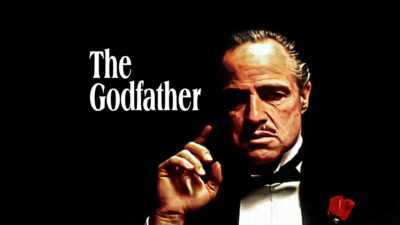Olympic viewership is huge, with online content a team player.
As recently as a week ago, a ratings gold medal for coverage of the Beijing Olympics might have looked beyond NBC’s grasp.
The average U.S. household has more than 100 channels from which to choose, and Games held in foreign countries — as seen in Greece in 2004 or Australia in 2000 — just don’t tend to grab the attention of Americans like Olympics held closer to home. What’s more, the yawning time difference between China and the U.S. makes it difficult to air big events live. There are so many video-sharing websites now that intrepid fans can simply bypass packaged broadcasts and get real-time coverage if they want.
But as NBC’s Olympics telecast enters its sixth day to record ratings — the best numbers for a summer Olympiad since Atlanta in 1996 — it’s evident that the Beijing Olympics have become, for many viewers, the type of all-consuming addiction seldom seen in modern media, with the online content stoking appetites for TV coverage and vice versa.
“We’re on pace to be the most-watched Olympics ever,” NBC research chief Alan Wurtzel said.
The television coverage may, in fact, be ballasted by the Internet’s ability to provide a bottomless well of information for anyone who seeks it. NBC, presenting its 11th Olympics, is lavishing a record 3,600 hours of coverage on the Beijing Games, plus additional material on the Web. In contrast to past years, when the network was criticized for limited coverage, NBC bulked up its Beijing Olympics website, offering streaming coverage even of minor sports such as archery and fencing and working for months on technical improvements.
Meanwhile, more Internet users are capable of watching video streams than ever before. According to Leichtman Research Group, 57% of U.S. homes had broadband connections in March, compared with 31% in December 2004.
Young, Web-savvy fans in particular have embraced the comprehensive coverage.
“NBC has a dedicated soccer channel [on cable] and live stuff on NBCOlympics.com,” enthused Jonathan Mays, a 22-year old senior at the University of Missouri. Mays said he can follow the progress of the teams as they move from the group stage through quarterfinals and finals.
Indeed, parent company NBC Universal may be doing more than just racking up some nice numbers from Nielsen Media Research; it may be rewriting rules for media in the future.
As the TV audience subdivides into ever-shrinking niches, sapping the ratings of virtually all programming options, marquee sporting events have emerged as the one format that can unite the nation. In February, Fox’s Super Bowl smashed records with 97.5 million total viewers.
Now, NBC estimates that 157 million viewers watched at least some of the coverage spread across its various TV, online or wireless platforms during the first four days in Beijing. An average of 30.4 million viewers watched nightly in prime time, according to Nielsen. That exceeds the audience for most airings of Fox’s musical smash “American Idol” and is especially impressive considering that, thanks to out-of-town vacations and daylight stretching past 8 p.m. in some areas, fewer people watch television during the summer months than at other times of the year.
NBC’s Beijing Olympics website in just four days swept past the entire 2004 Athens Games in every key metric, including page views (291.1 million vs. 229.9 million).
Reached by phone Tuesday in Beijing, Wurtzel, president of television research and media development for NBC Universal, called the Olympics an “extraordinary research laboratory” for the company to learn how to deliver content on multiple platforms and understand viewer behavior.
Researchers are using a new technique — what’s called Total Audience Measure index (TAMi) in NBC’s corporate jargon — to track viewers’ exposure to various platforms. And they plan to apply this to other network programming when the Olympics are over, Wurtzel said.
“Far from being a cannibalizer, the Internet increases both [viewers’ engagement] with TV and their use of it,” Wurtzel said.
On Sunday, for instance, NBC researchers found that just 4% of viewers who used the Internet said they were watching more Olympics as a result. Monday night that number grew to 25%.
The Games are spurring TV watching among those who ordinarily would have had their sets switched off. In a research note Tuesday, New York ad firm Magna noted that for Friday’s opening ceremony “most of NBC’s increased audience came from people that weren’t watching TV three weeks ago.”
Clearly, NBC has been aided by the fact that the Games are being held in China, a rising power that evokes deep curiosity and conflicting passions for many Americans. Friday’s opening ceremony, the culmination of seven years’ preparation and an estimated $300 million in production costs, were widely considered to be a creative triumph. Swimmer Michael Phelps’ quest to win eight gold medals provides the kind of heroic story necessary to keep viewers glued to their sets.
“Without question, Michael Phelps is our biggest star,” NBC marketing vice president Mike McCarley said.
Add it up and one begins to see how Beijing has enabled NBC to overcome the bad memories from its disastrous Olympics “triplecast” pay-per-view experiment in Barcelona in 1992, when the company lost an estimated $100 million after betting mistakenly that viewers would shell out extra cash to watch their favorite events.
The Beijing coverage has not been without a few hitches. Some viewers in California and elsewhere have complained that NBC has tagged certain events as “live” that actually aired on a two-hour delay, with only East Coast viewers seeing them as they happened. Because so much information is available online in real time, “spoilers” are common.
“I was flipping back and forth between beach volleyball [on NBC] and ‘Monday Night Football’ [on ESPN], and ESPN reported Michael Phelps’ third gold medal win,” said Jake Teske, a 27-year-old teacher from Denver. “But NBC [kept] telling the viewer they’re going to cover the race live.”
It happened again when he found out about the men’s 400-meter freestyle relay from a newspaper website before NBC showed it “live.”
“NBC needs to either cover these events live, or quit saying it is,” Teske said.
Now, Teske said he tries to avoid news sites and plans his Olympic TV viewing with help from Entertainment Weekly’s website.
An NBC spokesman said after learning of viewer complaints, the network began stamping video several times per hour with explanations that the material had aired live in the Eastern and Central time zones.
There is always the chance that viewer interest will wane before the closing ceremony. But that seems unlikely with stars like Phelps around.
Starting in November, NBC began promoting the swimmer as a potential Olympics star, including him during its coverage of the Macy’s Thanksgiving parade.
“Knowing his story will play out live in prime time, fans can follow him and his story much like a serialized drama,” NBC’s McCarley said.
Indeed, NBC executives have treated this Olympics as a consummate cultural event, not just an athletic competition.
As Wurtzel said, “The reason we’ve reached half of America is [that it’s] way beyond just a sporting event.”


Frank Wilson is a retired teacher with over 30 years of combined experience in the education, small business technology, and real estate business. He now blogs as a hobby and spends most days tinkering with old computers. Wilson is passionate about tech, enjoys fishing, and loves drinking beer.





















 Jane’s Addiction Reunion Rumors: Will Eric Avery & Perry Ferrell Ever Be Friends Again?
Jane’s Addiction Reunion Rumors: Will Eric Avery & Perry Ferrell Ever Be Friends Again?
Leave a Reply